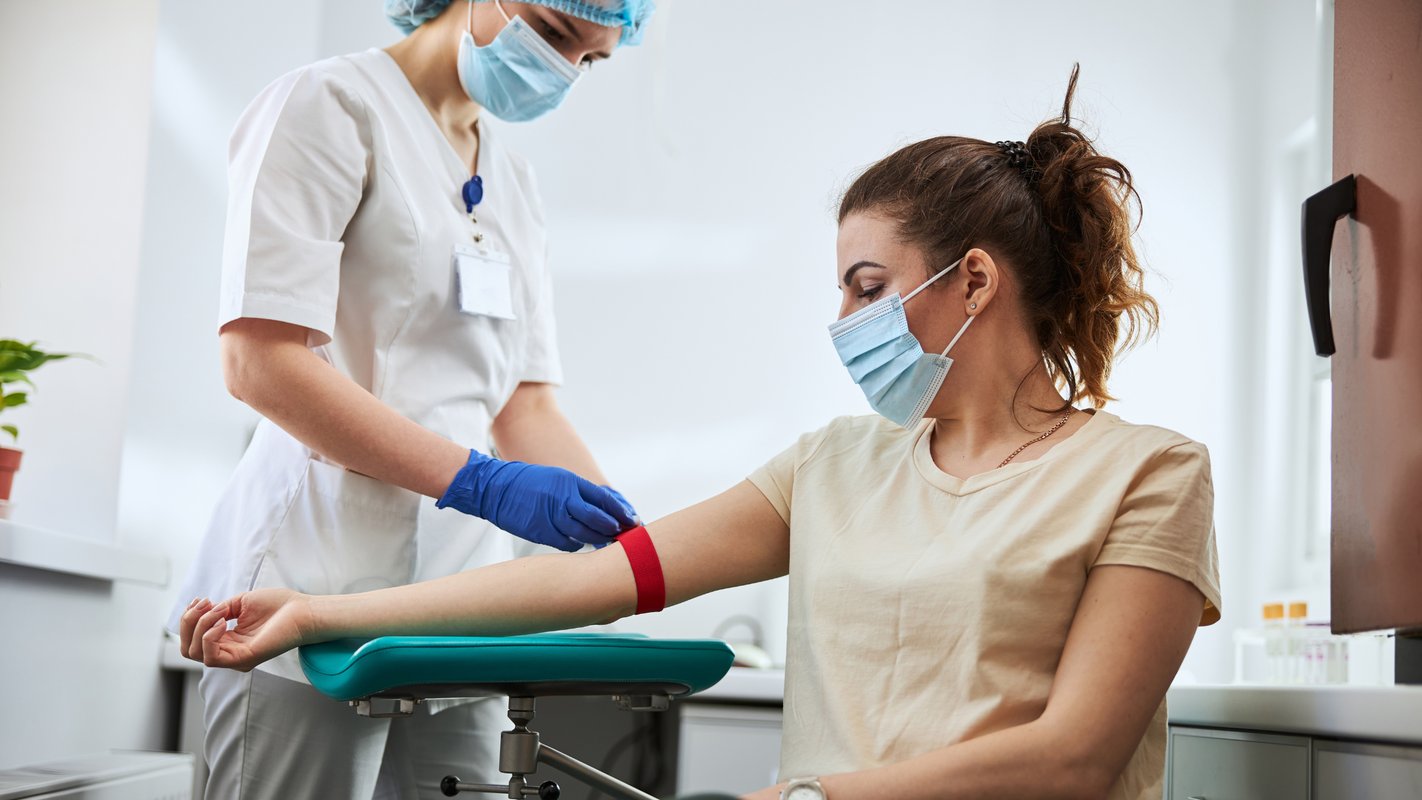What is Phlebotomy?
Phlebotomists are healthcare professionals responsible for drawing blood from patients for various medical tests, transfusions, and research purposes. Their main responsibilities include collecting blood samples, preparing them for analysis, and ensuring proper handling and storage of the collected samples.
How to Become a Phlebotomist in Kansas? What are the requirements to become a Phlebotomist in Kansas?
To become a phlebotomist in Kansas, here are the key steps that you need to follow:
1. Complete an approved phlebotomist training program: One must first complete a phlebotomy education program, which typically involves 80-120 hours of classroom instruction and hands-on training. With class sizes ranging from 10-30 students, you'll receive the personal attention and support you need to thrive. Before enrolling in a phlebotomy program, make sure to verify the following:
- Check if the school or training provider is approved by the state
- Verify how many hours of training is needed
- Confirm the location of your clinical hours
- Ask your school for the inclusions of your tuition. Some schools already include the cost of books, uniforms, certification exams, etc.
- Ask your school for a preferred agency to take your certification exam
2. Meet general requirements: If you’re planning to join a phlebotomy training program, prepare your high school diploma or GED, a clear background check, and up-to-date immunization records. A physical and health exam is also typically needed. You also need to be at least 18 years old. Most phlebotomy schools in Kansas follow these rules. These are subject to changes without prior notice, so it’s recommended to reach out to your chosen school and get the full updated list of requirements!
3. Pass the phlebotomy certification exam: Once you've successfully finished your phlebotomy training course, you'll be awarded a Certificate of Completion. But don't mistake this for being 'Certified'. This is a common misconception. The Certificate of Completion is awarded by your school, proving you've completed your phlebotomy training and it's your way to register for the national certification exam.
Taking the national exam is through the certifying agencies which will be discussed later. Taking your national exams and being certified is important for those who are new to the field and don't have any prior experience.
Once certified, you can then search for phlebotomy jobs and start your career in the healthcare field!
Where can I find Phlebotomy classes in Kansas?
Looking for top-notch phlebotomy classes in Kansas? Look no further! Dreambound, the leading gateway for students seeking vocational training, is your go-to resource. Dreambound and its easy-to-use platform have an extensive range of phlebotomy training programs from reputable, accredited schools all across the state. With Dreambound, finding the perfect phlebotomy classes near you is a breeze. Trust us to guide you to an enriching learning experience that's just right for you!
How do I get my Phlebotomy certification in Kansas?
Ready to stand out in the world of phlebotomy? Get certified! This stamp of approval not only validates your skills but also boosts your career prospects. There are multiple agencies that certify phlebotomists. One option is the National Performance Specialists (NPS). The phlebotomy certification with them is $200 which includes a comprehensive study guide, unlimited practice exams, a national certification exam, and a professional resume makeover.
Before you can take the exam, certifying agencies often require a high school diploma or GED, completion of a phlebotomy training program, proof of work experience and a certain number of years, and proof of successful blood draws and capillary sticks.
Once you've registered for the exam, it's time to hit the books! Study for an hour a day, take practice exams, and before you know it, you'll be ready to ace the final certification exam.
Pass the exam, and voila! You're a certified phlebotomist. Your credentials will be promptly added to the national registry and agencies often provide a digital copy in your account. This is printable and may serve as your proof of certified phlebotomist!
Other certifying agencies are American Medical Technologist, American Society for Clinical Pathology (ASCP), National Center for Competency Testing (NCCT), American Certification Agency (ACA), National Healthcareer Association (NHA), American Society of Phlebotomy Technicians (ASPT), and National Phlebotomy Association (NPA).
Where does a Phlebotomist work?
From hospitals to doctor's offices, from blood banks to high-tech diagnostic labs, the world of a phlebotomist is diverse and dynamic. They're even found on the go in mobile blood collection units, bringing their essential services to schools, businesses, and local events! And here's the exciting part - the demand for these unsung heroes in healthcare is set to surge by 8% from 2022 to 2032. That's a growth rate that outpaces the average for all other jobs!
How do I get a job as a Phlebotomist?
To secure a job as a phlebotomist in Kansas, you can search for job postings in healthcare facilities, apply directly to hospitals or clinics, or utilize job search platforms. Networking with healthcare professionals and attending job fairs can also help find phlebotomy job opportunities.
Keep your certification valid and stay in demand in the job market. Phlebotomy certification is usually valid for 1-3 years. You can renew it through your certifying agency, usually by earning continuing education credits. Remember, expiry dates, fees, and renewal rules can vary, so stay informed.
Career Paths and Opportunities after Becoming a Phlebotomist
With a phlebotomy certification, you can pursue various career paths, such as working as a phlebotomist in a hospital, clinic, or laboratory setting. Additionally, some phlebotomists may choose to advance their careers by specializing in areas like donor recruitment, laboratory management, or education and training. Here are some helpful blogs that may widen your interest after being a certified phlebotomist!
Frequently Asked Questions





